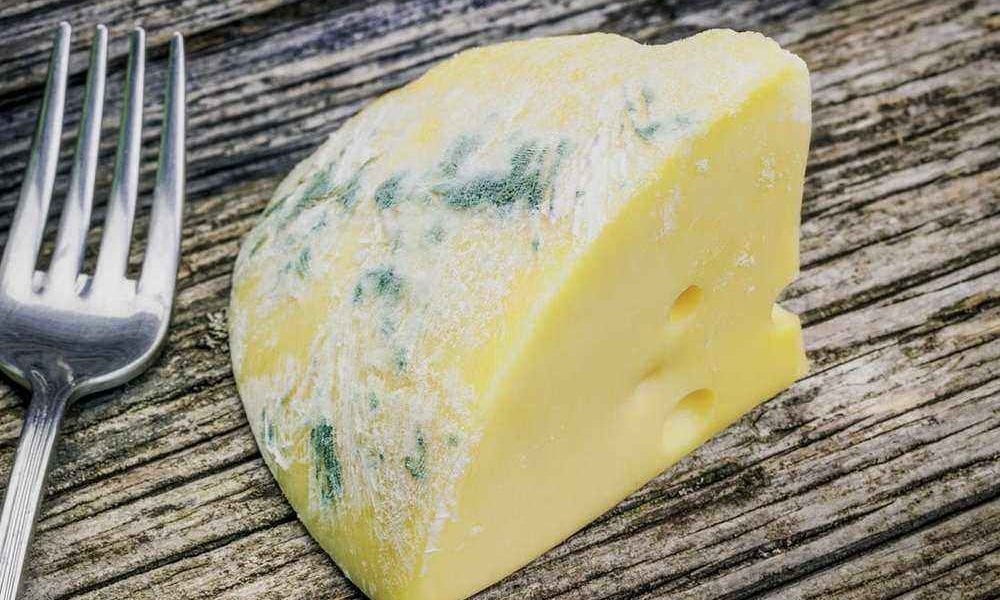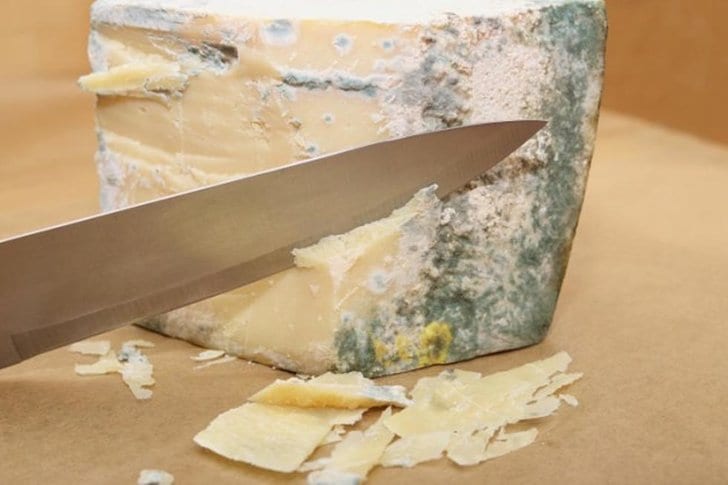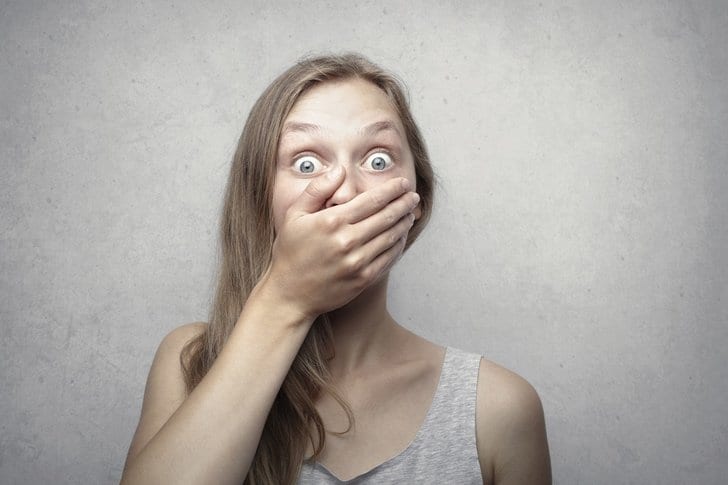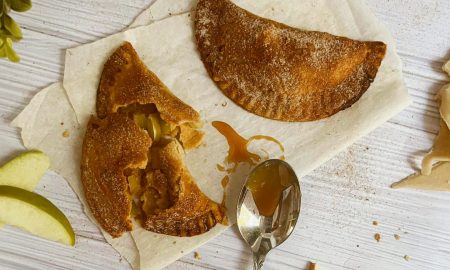
Moldy Cheese – to Eat or Not to Eat, That Is The Real Struggle

Okay, picture this: you buy a beautiful chunk of Parmesan cheese that you intend to eat during the week, but for some reason, you can’t eat it right away, so you put it in the fridge. Now, after a couple of days when you think of grating it over a lovely bowl of pasta, you take it out only to find that it has developed ugly looking mold that makes you go eww! It’s fluffy, bluish-green, and spotty all over, which gives you a bit of a dilemma.

Business Insider | Cutting off the moldy bits of a chunk of cheese to eat the remaining could be risky
You don’t want to throw away the expensive cheese that you just bought, and you, of course, can’t eat it as is. You think of taking the middle road – remove the rotten part and eat the rest of it.
Now, before you go all holier than thou, many of us would actually do that. And that’s where this article comes into the picture. If you’re going to eat even a little part of cheese that’s gone bad, you should know the following:
Read – Preventing and Solving Moisture and Mold Problems in Your Home
What can happen?
Though it may be extremely rare, some types of cheese mold can produce toxic substances that may make you very sick – one of such toxic substances has even been linked to liver cancer! Secondly, for many people, inhaling mold while chewing causes breathing problems and allergic reactions. And in the worst case of all, you may accidentally eat mold, which contains fungal toxins!

Pexels | Experts say it could lead to allergic reactions, vomiting, nausea, diarrhea, etc.
What symptoms you may develop after
If you’ve accidentally eaten mold and are feeling sick, you could develop different kinds of symptoms. According to WHO, the consumption of or exposure to the toxins in moldy cheese can cause diarrhea, vomiting, dizziness, internal bleeding, abdominal pain, and more. Moreover, mold sometimes (not always) indicates the presence of bacteria that can cause food poisoning.
Read – What Are the Symptoms of Food Poisoning?
Is it really that bad?
If you’re wondering if something drastic might really happen to your body, let us assure you, most likely it wouldn’t. The above mentioned scary things could unfold if the cheese is really old and you’re really unlucky. Heck, many of us sometimes eat slightly moldy bread, and nothing happens, right? Plus, some mold is used in the production of cheese, so it’s there anyways!

Thought Co | But there are only rare chances of something like this happening. In most cases, your body might not react to moldy cheese at all
To give a final word
The bottom line is that not all molds are harmful to the body, but experts say this is not worth the risk, especially if you have a weak immune system. So, if you see mold infecting any soft food, even if it’s just a speck, you should assume that the entire meal is tainted. To avoid spreading the mold in such cases, put that food in a bag and dispose it off. Don’t smell it to see if it’s “good,” as inhaling mold spores can cause allergic reactions and respiratory problems.
More in Food
-
`
Matt Damon’s Dating History: From Winona Ryder to Rhona Mitra
Matt Damon has always been one of Hollywood’s most-watched celebrities, not just for his impressive filmography but also for his intriguing...
June 25, 2024 -
`
How to Build Fast-Twitch Muscles in 5 Simple Steps
Have you ever wondered how to build fast-twitch muscles? These powerful muscle fibers are key to explosive strength and speed. Whether...
June 20, 2024 -
`
How to Create the Perfect Goulash Recipe Every Time
As autumn leaves paint the landscape in warm hues, nothing complements the chill in the air quite like a bowl of...
June 15, 2024 -
`
Fun Things to Do When Bored With Friends
When boredom strikes, especially when you are with friends, it is easy to fall into the trap of mindlessly scrolling through...
June 4, 2024 -
`
The Top 5 Taylor Swift Breakup Songs Ranked
When it comes to heartbreak anthems, few artists have mastered the craft as well as Taylor Swift. Known for her lyrical...
May 29, 2024 -
`
Transform Your Pecs in Weeks With These Tested Upper Chest Workouts
Are you tired of the same old bench press routine and looking for something to really pump up your upper chest?...
May 22, 2024 -
`
A Step-by-Step Guide to Cooking the Deep-Flavored Lamb Shoulder Chops
Lamb shoulder chops can seem intimidating with their marbled cuts and rich flavor. But with the right preparation and technique, these...
May 15, 2024 -
`
Easy & Fun Disney House Decor Ideas For Everyone
Whether you are a die-hard Disney fan or just appreciate a touch of whimsy, Disney house decor can transform your living...
May 8, 2024 -
`
The Complete Dating History of Star Singer Demi Lovato
Star singer with a voice as powerful as her presence, Demi Lovato has been in the public eye for years not...
April 29, 2024















You must be logged in to post a comment Login